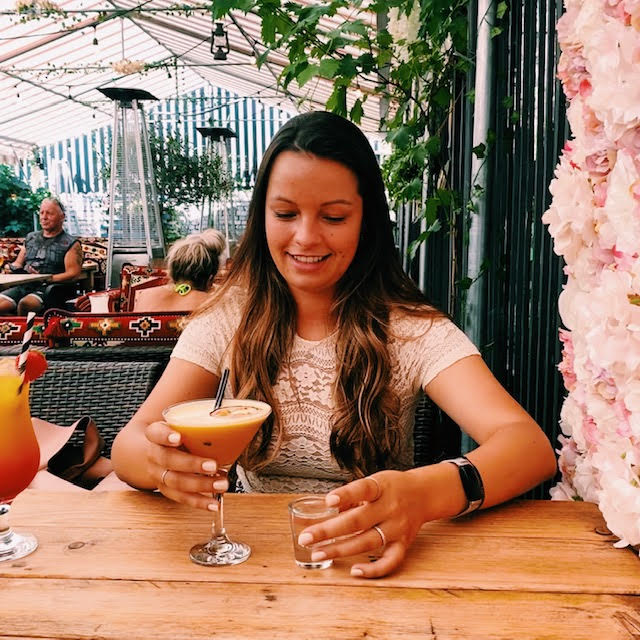Ways to Reduce Anxiety Naturally
- Exercise
- Reduce alcohol
- Reduce caffeine
- Stop smoking
- Meditate
- Improve your sleep
- Honour Your Body
- Get out into nature
- Aromatherapy
- Get cosy
- Professional Techniques
- Hypnotherapy
- Breathing exercises
- Guided self help
- Applied relaxation
As everyone who suffers from anxiety knows, it can affect every part of your life when we leave it to get out of control. Finding ways to reduce anxiety that work for you is the key to being able to manage your symptoms effectively and improve your quality of life.
There are many ways that we can help to reduce anxiety naturally without the use of medication. SSRIs don’t work for everyone and some would prefer to try other methods first. Others don’t want to rely on medication for the rest of their lives and so must try to find some other ways that will help to manage and reduce anxiety in a natural and effective way.
1 in 13 people globally suffers with anxiety and all of those people experience their anxiety differently. This also means they manage it differently too, so some things that work for others, won’t work for you so it’s okay to try many methods until you find some that are effective for you.
Thankfully, there are many ways for you to reduce anxiety, minimise it creeping up on you and manage it when it does appear.
Exercise
I’m not going to bore you with all of the in depth studies about the benefits of exercise because I’m sure you’ve heard it all before.
But I will tell you this. Exercise has shown to significantly reduce symptoms of anxiety for long periods of time. Exercise puts your body up to a high intensity in a lot of ways. Our breathing rate increases, our blood pressure and heart rate go up and we sweat as we work off those calories and use up our energy store.
After exercising so intensely, our body needs time to rest and recover, to make those changes you want to see i.e. stronger muscles, more endurance etc. This means that our brain slows down a bit more than usual while our body relaxes which in turn, reduces that high alertness that comes with anxiety.
Reduce Alcohol Intake
Please don’t skip over this one as it is one of the most important ones.
You probably all know that drinking too much alcohol can cause more problems than an addiction alone. There are many physical and health problems that it can cause but how much can it affect your mind?
After a few drinks, we become tipsy, off balance and less aware of our surroundings. Alcohol is also a depressant drug that slowly shuts down your body and mind.
When I first started experiencing anxiety in its manifested state, it was whilst I was under the influence of alcohol. The confusion and lack of coordination often made me feel out of control and that caused me to panic.
Our decision making skills are affected while we have alcohol in our system and so we can end up being reckless and doing things we wouldn’t soberly do. This leads to dread and self sabotage when you come to realise and remember your actions which can trigger your anxiety significantly.
Reduce Caffeine Intake
Many mental illnesses come with the symptom of tiredness and fatigue. When we feel tired, a lot of us turn to caffeine to get us through the day.
But caffeine is only a temporary solution and holds a lot of its own side effects.
One of those being nervousness. In excess, caffeine can make us feel wired and overly paranoid. This can play on our nerves and make our heart rates pick up, which in turn can mess with our anxiety.
Caffeine can also cause physical jitters and panic attacks when this happens.
Stop Smoking
As a smoker, you are addicted to the nicotine that is in every cigarette you smoke. Addictions are hard to fight and overcome and people can feel more relaxed when they have had their fix i.e. smoking a cigarette.
Initially, this may calm you when you’re feeling tense or in need of a quick de-stress but you may not realise how smoking can affect your anxiety.
You’re at a higher risk of developing an anxiety disorder, if you don’t already and the chemicals in cigarettes can actually alter the parts of your brain that are linked to anxiety.
We are also told a lot about the physical effects of smoking which may psychologically tell us how badly our body is being affected and play on our anxiety.
Meditate
Meditation can help you to feel more at peace, calm and present in the moment. Whilst meditating you can practise deep breathing which I mentioned earlier is beneficial in its own way and become more familiar with mindfulness.
As you meditate, you focus on feeling the breath move in and out of your body, feel the rise and fall of your chest, the sensations your body feels as you sit still and the world steadily moves around you.
Focusing on the physical sensations around you, such as the feel of your feet on the floor, your weight on your yoga mat and your hands resting on your thighs.
When your mind drifts onto other thoughts, bring your attention back to your body and those physical anchors so that you can focus on being in the present.
Meditation helps to relieve stress and tension from the body, helps to relax the mind and gives us a few moments of the day where we are caring for ourselves. All of these things can help to reduce anxiety.
Improve Your Sleep
Insomnia is another common symptom of anxiety. Racing minds, fidgeting and worry can keep us up at unhealthy hours of the night.
Our sleep is so important for our bodies to rest properly, recover from the day and prepare for the next. Without an ideal amount of sleep, our bodies and minds can become exhausted and we are left with little energy to control our anxiety symptoms.
Lack of sleep can also make us more irritable and subject to anxiety creeping up on us.
There are many ways you can improve your quality of sleep:
- Try not to nap in the day (unless absolutely necessary)
- Only climb into bed when it’s time to sleep
- Stay away from screens at least an hour before bedtime
- Change your environment if you can’t sleep. Go to a spare room or the sofa. We become more frustrated when we’re tossing and turning when we may be comfier or be more settled elsewhere.
- Avoid caffeine, a large amount of food, alcohol and nicotine a couple of hours before bed. It’s no secret that all of these things affect our attention span and keep us up for longer.
- Find your ideal sleeping environment. Some people like to have weighted blankets or thick duvets. Others like the window open or a fan to keep the room cool. Experiment with different things to see if you can find your ideal sleeping environment.
- Try lavender scents. Lavender has a relaxing effect on the body which can help us to drift off to sleep. Try this sleep mist to spray on your pillow or sleep shirt that I use most nights.
- Practise gratitude or journaling before bedtime to reduce your worries from the day.
- Find a consistent sleeping schedule.
Honour Your Body
Anxiety can present itself with upset stomachs, which is a symptom a lot of people don’t relate to anxiety. Part of the reason for this is because 95% of serotonin receptors are found in the gut which explains why you get ‘butterflies in your tummy’ when you’re nervous and why the stomach is referred to as the ‘second brain’.
Extreme nervousness can affect our digestive system and there are some vitamins and minerals that may help to reduce anxiety:
- Magnesium (found in leafy greens, nuts, seeds and whole grains)
- Zinc (found in egg yolks, oysters and liver)
- Omega 3 fatty acids (found in salmon, mackerel, sardines, flax seeds, chia seeds, walnuts and soybeans)
- Antioxidants (found in berries, prunes cherries, broccoli, turmeric and ginger)
- Amino acid L-theanine (found in green tea and used in Chinese medicine, nuts, whole grains and broccoli) which relieves stress, reduces blood pressure and muscle tension.
- Matricaria recutita (found in chamomile tea) binds to the brain receptors that calm your mind so can significantly reduce anxiety symptoms.
- Tryptophan (found in turkey) which produces serotonin.
Low blood sugar, dehydration and artificial components can all have effects on your mood and activity too so take note of what you’ve been eating when your anxiety worsens.
Spend Time in Nature
Most people with anxiety feel more relaxed when they’re outdoors. Whether that’s the fresh air or freedom of being closed in, there’s many reasons why being outdoors and in nature can help reduce anxiety.
Nature can often be something we ignore or don’t appreciate often enough, especially when we are around it all of the time. Natural settings actually help to reduce our blood pressure, heart rate and stress hormones.
Getting out into nature doesn’t necessarily mean that you have to travel to a national park or camp in the woods. But I would recommend trying to get out into an area where you’re away from the hustle and bustle of other people’s busy lives such as a city or town center where you may keep being pulled out of your relaxed state.
It’s not surprising that Japan has amazing preventive therapies for anxiety. Shinrin yoku loosely translates to ‘forest bathing’ and is a practise where you experience nature through all of your senses, absorbing the sounds, scents and sights that you’re surrounded by.
You can find your nearest forest trail online or simply go for a walk in a quieter place and take in as much as possible. Try to count how many birds you see or different types of trees. Or just allow yourself to take as much in as possible. Find some popular UK destinations here.
Being out in nature can also serve as a beneficial distraction from your worries but doing this consistently can give you that much needed breath of fresh air too that you need to reduce anxiety.
Put on your headphones and listen to some calming music or take in the natural sounds of where you are in the world.
Try Aromatherapy, Acupuncture and Massages
Aromatherapy uses essential oils to help with health, energy and wellbeing. You can use essential oils in many different ways such as adding them into a bath, using them in a diffuser, or dropping them on your skin, clothes or bedding.
Aromatherapy can help reduce anxiety by helping you to relax, sleep better, boost your mood and rescue blood pressure and heart rate.
Some essential oils that help to reduce anxiety are bergamot, lavender, clary sage, grapefruit, lemon and ylang ylang.
Acupuncture has now become recognised as an accepted treatment for both physical and mental conditions. It creates a calming effect on your mind and body which helps to relieve anxiety so research it and talk to your doctor.
Massages also help by having a calming effect on the body. It can help reduce muscle tension and improve circulation which may help you to sleep better.
Get Cosy
We associate feelings of warmth with calmness and happiness, just like when we’re tucked up in bed with our other half, having a comforting cuddle.
Getting cosy in a warm bath, steam room or sauna can reduce anxiety by releasing muscle tension.
Other warm sensations can boost our mood and release more serotonin so get comfy in front of the fire and buy yourself a cosy blanket.
Professional Techniques
Hypnotherapy
Hypnotherapy is used by specialists to treat anxiety alongside many other conditions. I went through a hypnotherapy session that left me feeling relaxed, rejuvenated and elated. I felt like I’d had my mind wiped clean and at that moment, there was nothing to worry about.
In a hypnotherapy session, you must have a conversation with the health professional you’re seeing so that they can understand exactly what your desired outcome of the hypnotherapy is. They will target one specific part of your brain called your subconscious and lead you into that near subconscious level where the anxiety lies.
People typically think that during hypnosis you’re unaware of what’s going on around you. That’s only partially true. When you close your eyes, you’re guided by the hypnotist’s voice and you focus so intently on what they’re saying that you block out everything else.
Your health professional will guide you into your subconscious state and propose scenarios to your brain and manifest the anxiety so you can tackle it.
You can read more about my hypnotherapy session in this post.
Breathing Exercises
When I started experiencing bad episodes of anxiety on top of my daily norm, I went to get help straight away. Stress often triggers a lot of anxiety for me and I don’t take enough time to stop and breathe.
I work alongside a mental health nurse and she recommended to me to start with some breathing exercises. Taking some time to do some deep breathing every day can help with oxygenating our blood and calm our minds. Slower and deeper breathing helps us to focus on calming ourselves which can help when anxiety symptoms are rising but also throughout every day to keep ourselves in a more relaxed state.
When we’re anxious, our breath becomes more rapid and shallow, our heart rate increases and our blood pressure goes up. Breathing deeply in these moments helps to stimulate the body’s relaxation response which helps to lower our heart rate and blood pressure.
Try to close your eyes if you can but you can practise this pretty much anywhere. At your desk at work, while you’re doing your weekly food shop or driving in the car (but maybe don’t close your eyes then).
Guided Self Help
Guided self help is usually recommended by psychological therapists or general practitioners for you to learn how to cope with your anxiety.
This usually consists of a CBT based course or workbook that is completed at your own pace with the support of a mental health professional.
Cognitive behaviour therapy has shown that it lasts much longer than any lasting effects of medication, as long as the sessions are provided often and for long enough. However, it works differently for everyone. But the main aim of CBT is for you to question and rationalise your anxious thoughts and stop avoiding the things that usually spike your anxiety.
Group courses and meetings can be offered too so that you can learn ways to manage your anxiety from other people going through the same thing.
Applied Relaxation
Applied relaxation is a practise that needs to be taught by a professional but generally focuses on relaxing your muscles in a specific way during the time of extreme anxiety.
The techniques used are usually:
- Learning how to relax your muscles (to release tension and make your body feel generally more relaxed)
- Learning how to relax your muscles in response to your triggers (and prevent a possible anxiety attack)
- Learning how to relax your muscles in situations that make you more anxious (and settle your mind and body from reacting)
Whichever methods work for you, remember to practise them often and always seek help and guidance from professionals as well as those closest to you in your life. Even though methods that reduce anxiety naturally can be really good for your mind and body, don’t completely neglect the idea of using medication to help you along your way. All of these ideas I’ve mentioned can be used in combination with medication and I’ve tried pretty much all of them myself whilst on medication.














